Protecting Your Woodshop Concrete Floor.
A quality woodshop floor is a significant investment and an important part of your woodshop’s infrastructure. The concrete floor serves as the foundation for all operations, and the significant investment you made in it should provide you with maximum value, be durable, and, for some of us, be aesthetically appealing.
Woodshop concrete floors must withstand significant wear and tear, such as the impact of heavy machinery, having things dropped on them, having things scraped along the top of them and occasionally being exposed to water, various chemicals, and spills.
Given these challenges, maintaining a concrete floor’s integrity and appearance is takes a bit of work.
A compromised floor can lead to safety hazards, structural defects, constantly increasing cracks and costly repairs at some point.
Furthermore, an unattractive, cracked up, deteriorating floor can detract from the overall ambiance of the woodshop, affecting the work environment and potentially devaluing the space, should you decide to sell your shop at some point in the future.
Protective coatings play a crucial role in preserving the longevity and beauty of a woodshop concrete floor.
These coatings provide a resilient barrier against physical damage, chemical spills, and moisture infiltration.
By investing in high-quality protective coatings, woodshop owners can enhance the durability of their floors, reduce maintenance costs, and maintain a professional appearance in their workspace.
Over the course of this article, I will walk you through the various types of durable and great looking coatings available for woodshop floors and offer guidance on selecting the best option for your needs.
Understanding the benefits and application processes of these coatings will empower you to make informed decisions, ensuring that your woodshop floor remains a robust and attractive foundation for years to come.
Challenges of Maintaining Woodshop Concrete Floors.
Maintaining woodshop and other trade discipline workshop concrete floors presents a unique set of challenges due to the demanding nature of the environment.
Although concrete is inherently durable, it is not impervious to damage, wear, and tear. The combination of heavy machinery, frequent foot traffic, occasional impact damage, scrapes from having things dragged across the top of them and exposure to water and chemicals can lead to significant deterioration and unsightly appearance over time.
One of the primary yet preventable issues faced is surface damage. Concrete floors in woodshops are often subjected to impacts from dropped tools and heavy equipment, leading to chips, cracks, and spalls.
These surface imperfections not only detract from the aesthetic appeal of the workspace but can also pose safety hazards, such as tripping risks for workers.
Wear and tear is another prevalent concern. The constant movement of machinery and the dragging of materials across the floor can cause abrasions, leading to the gradual wearing down of the concrete surface.
This erosion can result in uneven flooring, which can affect the stability of equipment and the safety of personnel.
I personally feel as though cracks in the floor are the most frustrating of all issues and there are several potential reasons why this can happen:
1. Moisture Issues: Poor drainage around the building, Rising damp from the ground, Leaks from plumbing or roof pooling at sides of your shop and sometimes people prefer to hose down workshop floors instead of sweeping them up.
2. Temperature fluctuations: Extreme temperature changes causing expansion and contraction and Inadequate expansion joints
3. Structural problems: Soil settlement beneath the slab and Foundation issues.
4. Original Construction Flaws: Improper concrete mix, Insufficient reinforcement and Poor curing process
5. Heavy loads: Placing excessive weight on the floor over time and Frequent movement of heavy machinery
6. Water And Chemical Exposure: Spills of corrosive substances used in woodworking.
7. Natural Aging: Concrete degradation over time.
Additionally, woodshops often deal with the accumulation of dust, wood shavings, and chemical spills, which can penetrate the porous nature of concrete. This leads to staining and degradation over time, making the floor harder to clean and maintain.
The absorption of liquids can also result in moisture-related issues, such as mold growth and weakening of the concrete structure.
Despite the inherent toughness of concrete, these factors underscore the necessity of protective measures to ensure its longevity.
Coatings and sealants if utilized can play a pivotal role in safeguarding against the aforementioned challenges.
They provide a barrier that enhances resistance to impact, abrasion, and chemical exposure, thereby extending the lifespan and maintaining the beauty of woodshop concrete floors.
Understanding Concrete Floor Polyurea Coatings.
Polyurea coatings represent a sophisticated solution for protecting and enhancing concrete floors, particularly in woodshops where durability and resilience are paramount.
Polyurea is a type of elastomer derived from step-growth polymerization, which combines a synthetic resin and an isocyanate-reactive material.
This unique chemical composition endows polyurea with exceptional properties that make it an ideal choice for woodshop environments.
One of the primary benefits of polyurea coatings is their outstanding durability. Unlike traditional epoxy coatings, polyurea forms a hard, flexible layer that can withstand significant wear and tear.
This makes it particularly suitable for high-traffic areas and spaces where heavy machinery is frequently used.
Additionally, polyurea coatings are highly resistant to abrasions, impacts, and scratches, ensuring that the floor maintains its integrity and appearance over time.
Another key advantage of polyurea is its chemical resistance. Woodshops often use various chemicals and solvents, which can degrade ordinary floor coatings.
Polyurea, however, offers superior resistance to oils, fuels, acids, and other chemicals, providing a robust barrier that protects the concrete substrate.
This resistance not only extends the lifespan of the flooring but also contributes to a safer working environment by reducing the risk of chemical damage and contamination.
Aesthetic appeal is also a notable benefit of polyurea coatings. Available in a range of colors and finishes, polyurea can be tailored to match the specific aesthetic requirements of any woodshop.
The coating can be applied seamlessly, resulting in a smooth, attractive surface that enhances the overall look of the workspace.
Moreover, polyurea’s UV stability ensures that the color and finish remain vibrant and do not yellow or fade over time, even when exposed to sunlight.
The application process for polyurea coatings is relatively straightforward, but it requires professional expertise to ensure optimal results.
The concrete surface must be properly prepared, typically through grinding or shot blasting, to create a suitable profile for the coating to adhere to.
Once prepared, the polyurea is applied in multiple layers, curing rapidly to form a tough, protective barrier. The quick curing time of polyurea minimizes downtime, allowing woodshop operations to resume promptly.
In conclusion, polyurea coatings offer a combination of durability, chemical resistance, and aesthetic appeal, making them an excellent choice for woodshop concrete floors.
Their application can significantly enhance the longevity and beauty of the flooring, ensuring a functional and visually pleasing workspace.
The Advantages of Epoxy Coatings for Woodshop Concrete Floors.
Epoxy coatings have become a popular choice for woodshop floors due to their impressive durability and customizable options.
When applied to concrete floors, epoxy coatings form a hard, resilient surface that can withstand the heavy machinery, tools, and foot traffic typical in woodshop environments.
The protective layer created by epoxy not only guards against physical wear and tear but also provides resistance to chemicals, oils, and other substances that could otherwise damage the concrete.
One of the primary benefits of using epoxy coatings in a woodshop is the significant enhancement in floor durability.
Unlike untreated concrete, which can crack, stain, and wear down over time, an epoxy-coated floor maintains its integrity and appearance for many years.
This longevity translates into lower maintenance costs and less frequent need for repairs, making epoxy an economically sound investment for woodshop owners.
Epoxy coatings also offer a high degree of customization, allowing woodshop owners to create aesthetically pleasing and unique floor designs.
Epoxy flake floors, for instance, incorporate colored flakes into the epoxy mixture, resulting in a visually appealing, textured surface.
These flakes come in a variety of colors and sizes, enabling the creation of patterns and designs that complement the overall aesthetic of the woodshop.
Additionally, epoxy coatings can be tailored to achieve various levels of gloss, from matte to high-gloss finishes, depending on the desired look and functionality.
Moreover, the application process of epoxy coatings is relatively straightforward.
When done by professionals, it involves thorough cleaning and preparation of the concrete surface, followed by the application of the epoxy mixture.
This ensures a seamless and even finish that enhances both the appearance and performance of the floor.
Epoxy coatings provide a robust, customizable, and visually very appealing solution for woodshop concrete floors.
Their ability to withstand heavy use, resist damage, and offer aesthetic flexibility makes them an ideal choice for maintaining the longevity and beauty of woodshop environments.
Polyaspartic Coatings On Concrete Floors Offer Substantial Protection.
Polyaspartic coatings represent a cutting-edge advancement in the realm of concrete floor protection, offering a multitude of benefits that make them an excellent choice for woodshop floors.
One of the most notable advantages of polyaspartic coatings is their rapid curing time.
Unlike traditional epoxy coatings, which can take a couple of days to fully cure, polyaspartic coatings can be ready for use in as little as a few hours.
This swift turnaround minimizes downtime, allowing woodshop operations to resume quickly without significant interruptions.
Another key benefit of polyaspartic coatings is their UV stability. Not that it’s an issue indoors of course but just for your info, exposure to sunlight can cause many floor coatings to yellow or fade over time, compromising both their appearance and performance.
Polyaspartic coatings, however, boast superior resistance to UV radiation, ensuring that the floors maintain their original color and finish for years to come. This UV stability is particularly beneficial in woodshops with large windows or skylights that allow natural light to flood the workspace.
Durability is yet another hallmark of polyaspartic coatings. These coatings offer exceptional resistance to abrasion, chemicals, and impacts, making them ideal for the high-traffic, heavy-duty environment of a woodshop.
Whether it’s the constant movement of heavy machinery, the occasional spill of solvents, or the unintentional drop of tools, polyaspartic coatings provide a robust protective layer that can withstand the rigors of daily use.
Beyond their functional benefits, polyaspartic coatings also offer significant aesthetic advantages.
They can be customized with various colors, finishes, and decorative elements, allowing woodshop owners to create stunning, personalized floors that enhance the overall ambiance of the workspace.
From sleek, glossy finishes to textured, non-slip surfaces, polyaspartic coatings offer a versatile solution that combines beauty with practicality.
In summary, polyaspartic coatings are a premier option for those seeking to maximize the longevity and beauty of their woodshop concrete floors.
With their fast curing times, UV stability, and superior durability, these coatings provide an unparalleled level of protection while also offering aesthetic flexibility to create visually appealing, high-performance floors.
Comparing Polyurea, Epoxy And Polyaspartic Concrete Floor Coatings.
When it comes to selecting the ideal coating for your woodshop concrete floors, the primary contenders are polyurea, epoxy, and polyaspartic coatings.
Each of these coating types offers unique benefits and potential drawbacks that must be carefully weighed to ensure optimal protection, durability, and aesthetic appeal for your workspace.
Polyurea coatings are renowned for their rapid curing times, often allowing for full use of the floor within 24 hours.
This quick turnaround is particularly advantageous in commercial settings where downtime must be minimized. Polyurea is highly resistant to chemicals and abrasions, making it a durable option for high-traffic woodshops.
However, its application process requires a controlled environment and specialized equipment, which can make it a more expensive choice.
Epoxy coatings have long been a popular option due to their balance of cost-effectiveness and performance. Epoxy provides a robust, hard surface capable of withstanding heavy machinery and frequent foot traffic.
It is also highly customizable, available in various colors and finishes to enhance the visual appeal of your woodshop.
Nonetheless, epoxy takes longer to cure, often requiring a couple of days before the floor is fully operational.
Additionally, it can be susceptible to yellowing and peeling over time if exposed to UV light.
Polyaspartic coatings offer a middle ground between polyurea and epoxy. They combine the rapid curing times similar to polyurea with the versatility and aesthetic options of epoxy.
Polyaspartic coatings are UV stable, meaning they resist yellowing and maintain their appearance over time.
They also provide excellent protection against chemical spills and abrasions. While polyaspartic coatings tend to be more expensive than epoxy, their long-term durability and ease of maintenance often justify the upfront investment.
In choosing the right coating for your woodshop, consider factors such as environmental conditions, budget, and the specific demands of your workspace. Each of these coatings; Polyurea, Epoxy and Polyaspartic has its strengths and weaknesses, but with careful evaluation, you can select the one that best meets your needs for a durable and aesthetically pleasing woodshop floor.
Choosing the Right Coating for Your Woodshop Concrete Floor.
Selecting the most suitable concrete floor coating for your woodshop is a critical decision that directly impacts the longevity and aesthetics of your workspace.
Several factors need to be considered to ensure you choose a coating that meets the specific needs of your woodshop, aligns with your budget, and delivers the desired appearance and durability.
Firstly, assess the specific requirements of your woodshop. Consider the type and frequency of activities performed, the potential for spills, exposure to heavy machinery, and the necessity for slip resistance.
For instance, woodshops with heavy machinery may benefit from a high-build epoxy coating, known for its exceptional durability and impact resistance.
On the other hand, if chemical resistance is a priority, a polyurethane coating might be more appropriate due to its superior resistance to various chemicals and solvents.
Budget is another crucial factor. While epoxy coatings tend to be more expensive upfront, their long-term benefits often justify the initial investment.
They offer excellent durability, which translates to less frequent recoating and maintenance costs.
However, if budget constraints are significant, acrylic sealers can be a cost-effective alternative, providing a decent level of protection and aesthetic enhancement at a lower price point.
The desired appearance of your woodshop floor also plays a vital role in the selection process.
If you aim for a sleek, polished look, epoxy or polyaspartic coatings can offer a glossy finish that enhances the overall appearance of your workspace.
For a more industrial look, a matte or satin finish might be preferable. Additionally, these coatings are available in various colors and can incorporate decorative elements such as flakes or metallic pigments to achieve a customized look.
Long-term durability is paramount. Invest in a coating that not only meets your immediate needs but also stands the test of time.
This means considering factors like abrasion resistance, UV stability, and ease of maintenance.
Polyaspartic coatings, for example, are known for their rapid curing times and outstanding resistance to wear and tear, making them an excellent choice for busy woodshops.
By carefully evaluating these factors, you can make an informed decision that ensures your woodshop’s concrete floors remain durable, functional, and visually appealing for years to come.
What Is A Professional Grade Concrete Floor Coatings?
A professional grade concrete floor coating typically falls into several main categories, based on type and their compositions as follows:
Epoxy Coatings (Discussed).
1. Composition: Two-part system consisting of epoxy resin and a hardener.
2. Properties: Excellent adhesion, chemical resistance, and durability.
3. Thickness: Can range from 10 to 100 mm or more.
Polyurethane Coatings (Not Discussed).
1. Composition: Polymer-based, often two-component systems.
2. Properties: High abrasion resistance, flexibility, and UV stability.
3. Thickness: Usually 2 to 3 mm per coat.
Polyaspartic Coatings (Discussed).
1. Composition: Aliphatic polyurea.
2. Properties: Fast curing, UV stable, excellent chemical resistance.
3. Thickness: Typically 10 to 15 mm total.
Acrylic Sealers (Not Discussed).
1. Composition: Acrylic resins dissolved in solvents or water.
2. Properties: Good UV resistance, easy application, economical.
3. Thickness: Usually thin, around 1-2 mm per coat.
Polyurea Coatings (Discussed).
1. Composition: Two-component system with isocyanate and resin blend.
2. Properties: Extremely fast curing, high flexibility, and impact resistance.
3. Thickness: Can range from 20 to over 250mm.
Methyl Methacrylate (MMA) Coatings (Not Discussed).
1. Composition: Acrylic-based resin with catalyst.
2. Properties: Very fast curing, excellent chemical resistance, can cure in cold temperatures.
3. Thickness: Typically 30 to 40mm total.
Each of these coatings has specific advantages and is chosen based on the particular requirements of the space, such as chemical exposure, traffic levels, aesthetic preferences, and environmental conditions.
A Professional Grade concrete floor coating typically refers to a high-quality, durable protective layer applied to concrete surfaces.
These coatings are designed to enhance the floor’s performance, appearance, and longevity.
Below are some key aspects of professional grade concrete floor coatings:
1. Durability: Highly resistant to wear, abrasion, chemicals, and impacts.
2. Thickness: Usually thicker than standard residential coatings, often measured in mils (1/1000 of an inch).
3. Chemical composition: Often epoxy-based, polyurethane, or polyaspartic formulations.
4. Application process: Typically requires specialized equipment and skilled professionals for proper installation.
5. Customization: Can be formulated for specific needs (e.g., anti-slip, chemical resistance, thermal shock resistance).
6. Aesthetic options: Available in various colors, patterns, and finishes.
7. Longevity: Expected to last many years with proper maintenance.
8. Performance in industrial settings: Designed to withstand heavy machinery, foot traffic, and potential chemical spills.
9. Easy maintenance: Often easier to clean and maintain than bare concrete.
10. Moisture resistance: Many professional grade coatings offer better protection against moisture-related issues.
These coatings are commonly used in industrial, commercial, and high-end residential settings where durability and performance are crucial
High-performance, professionally applied coatings offer a robust solution that not only enhances the aesthetic appeal of concrete floors but also provides superior protection against wear and tear.
By opting for these advanced coatings, you can ensure that your woodshop floors remain durable and attractive for many years to come.
One of the primary benefits of professional-grade coatings is their exceptional durability.
These coatings are designed to withstand heavy foot traffic, the weight of machinery, and the impact of dropped tools.
This means that your woodshop floor will be less prone to scratches, chips, and other forms of damage, maintaining a pristine look even in the face of rigorous daily use.
In Conclusion.
Investing in a high-performance floor coating, applied by skilled professionals is a wise decision for any woodshop owner.
Not only do these coatings enhance the visual appeal of concrete floors, but they also provide long-lasting protection and improve the safety of the workspace.
By opting for a professional-grade solution, you can ensure that your woodshop floors remain in top condition, ultimately enhancing the productivity and enjoyment of your woodworking projects.
Take the step today to invest in the long-term durability and beauty of your woodshop floors.

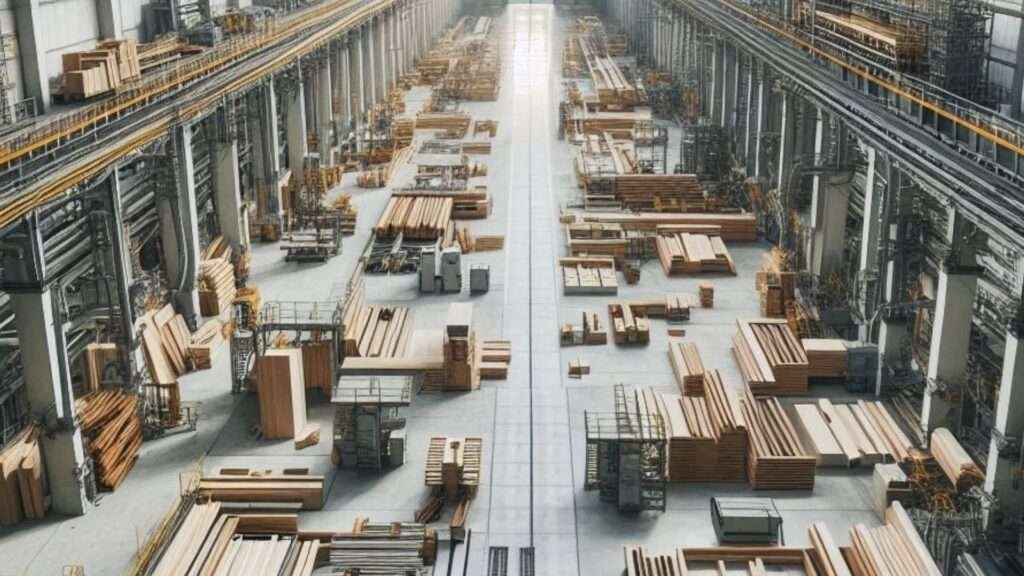

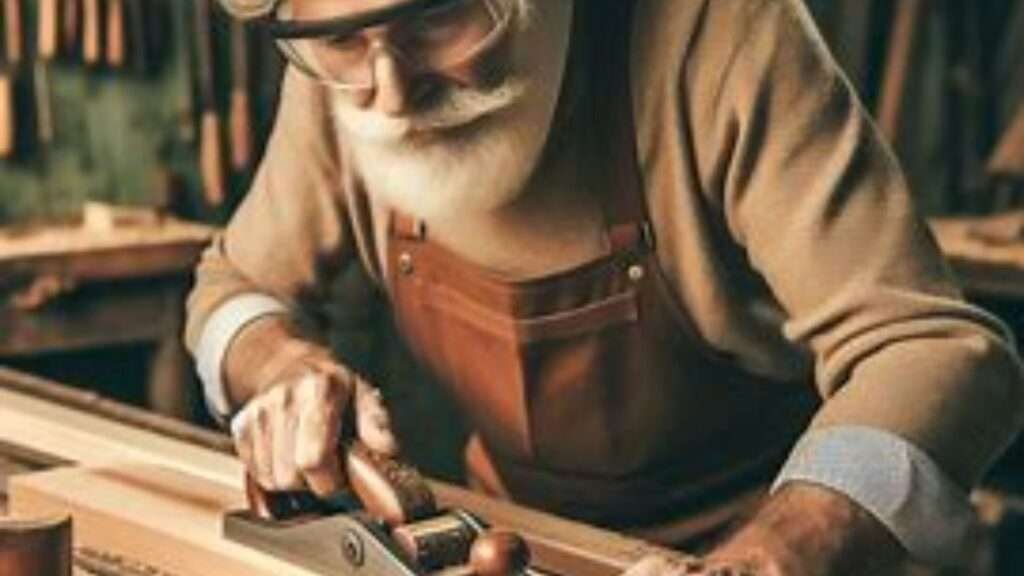

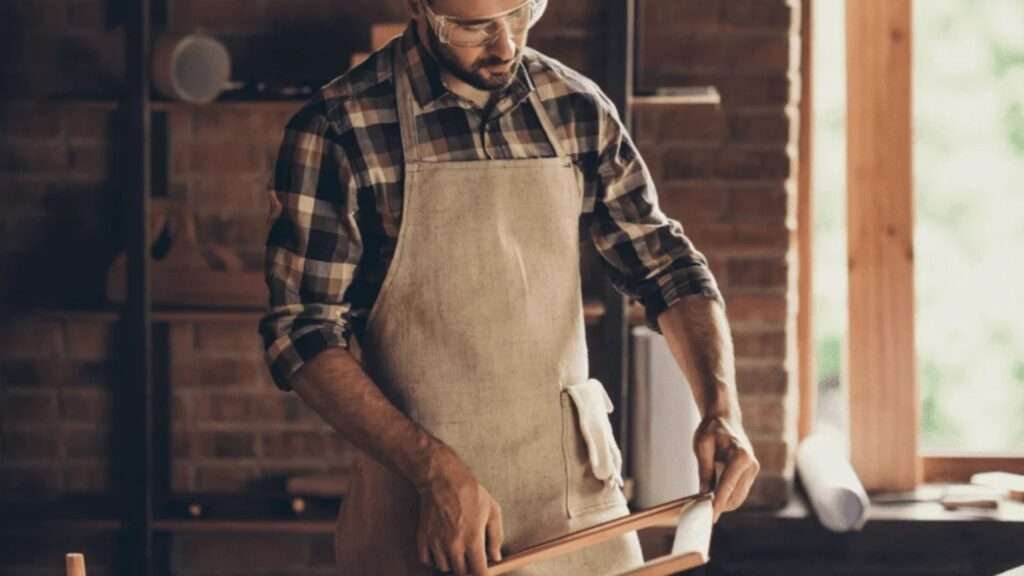
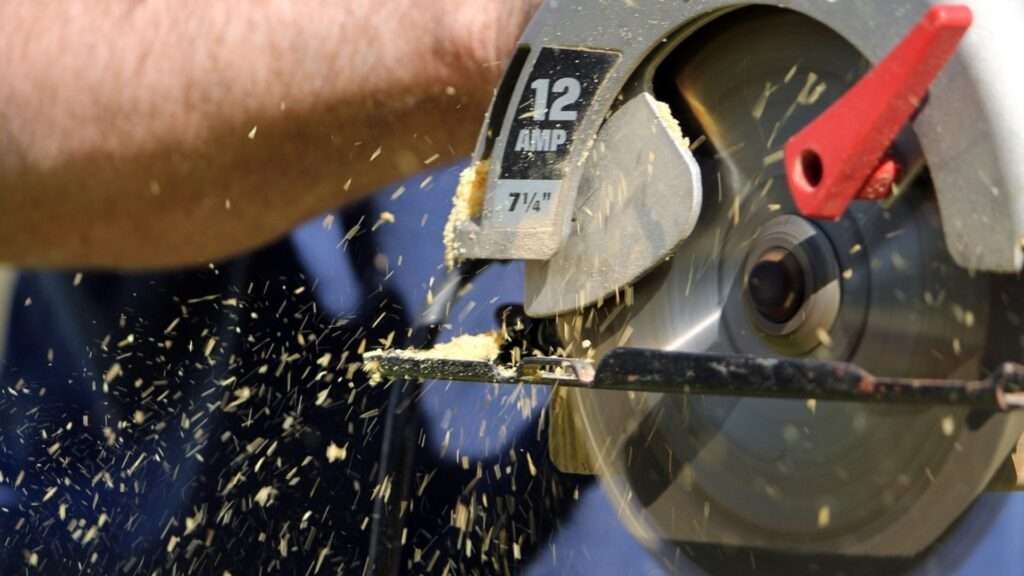

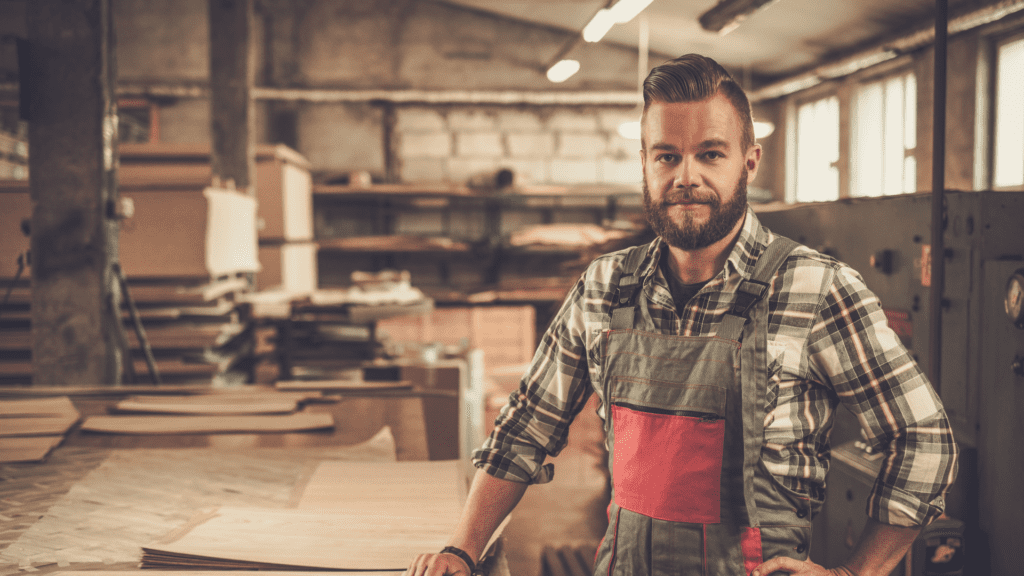
[…] https://www.glzwoodw.biz/extras/ […]